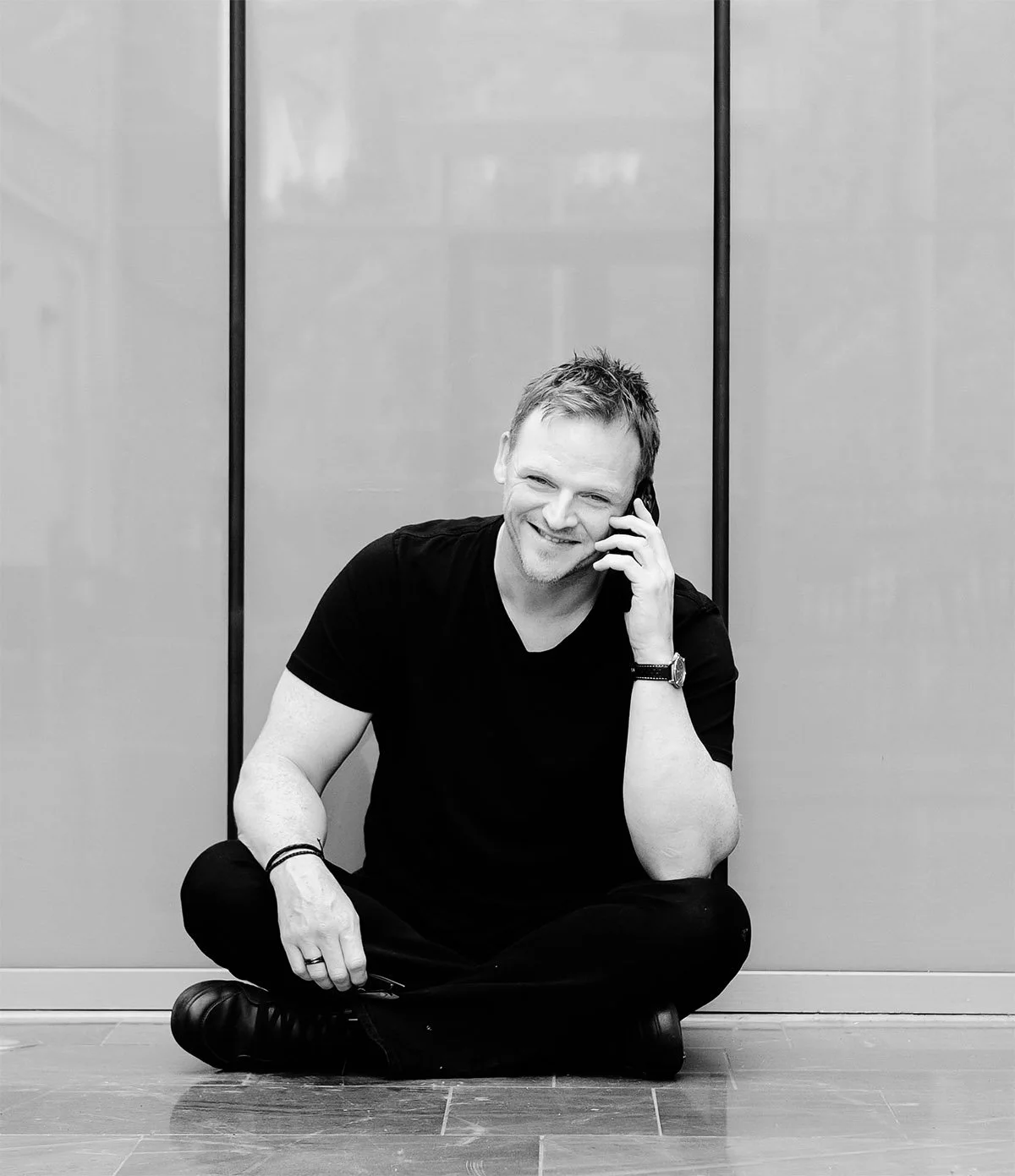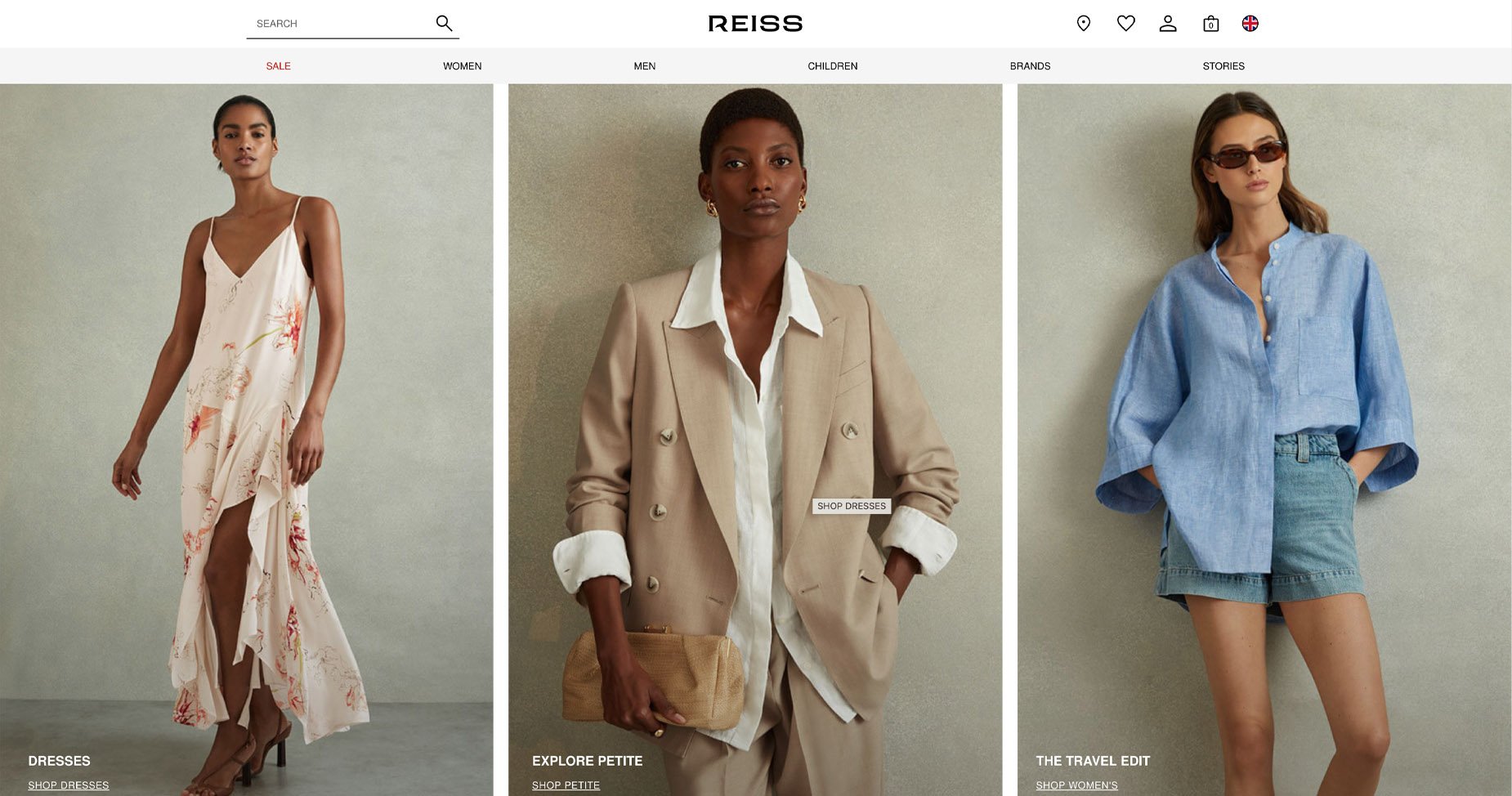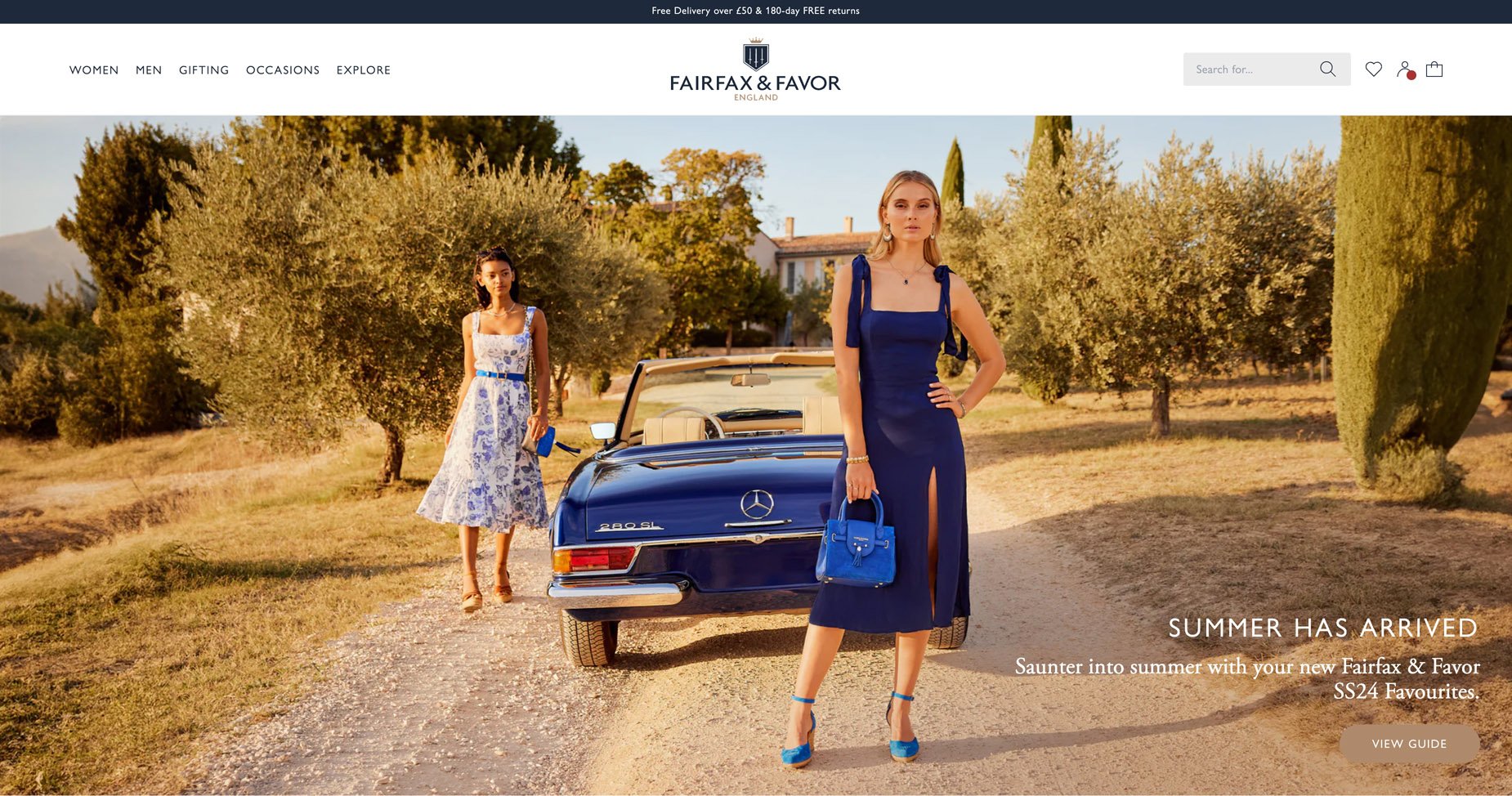The Key Components for Building a Standout Luxury Website
We are right in the eye of a digital storm and building an online business or website for luxury products has never been more accessible. Thanks to the rapid advancements in social media and technology, entrepreneurs can launch and grow their brands with unprecedented ease. There are fewer financial and technological roadblocks that business owners have to jump through to get ahead than companies did 40 years ago. Some of you will remember the painful experience of dial up internet! However, this accessibility comes with its own set of challenges. The market is way more competitive than ever, with countless businesses vying for the same customers. For luxury brands, standing out in this crowded space requires a unique approach.
The Challenge for Luxury Brands
Luxury businesses operate in a realm where exclusivity, quality, and prestige are paramount. As more companies leverage digital platforms to establish their presence, luxury brands must find innovative ways to differentiate themselves. It's no longer enough to simply have a high-quality product; luxury brands must also deliver an exceptional online experience that reflects their premium status.
“True luxury brands rise above the crowd by offering unmatched experiences and lasting connections through exclusivity, quality, and innovative digital design”
Steve Irvine - CEO Lionsorbet
What Defines a Luxury Brand?
To be recognised as a true luxury brand, several key elements must be in place:
Exclusivity and Prestige: Luxury brands thrive on their reputation for exclusivity. This can be achieved through limited product releases, bespoke services, and maintaining a sense of mystery around the brand.
Superior Quality: Every aspect of a luxury brand, from the materials used to the craftsmanship, should reflect the highest standards of quality. This uncompromising commitment to excellence is what sets luxury brands apart from the rest.
Heritage and Storytelling: Many luxury brands have rich histories and stories that add depth and authenticity to their products. Sharing these narratives can create a deeper connection with customers and reinforce the brand's prestigious image.
Exceptional Customer Experience: The customer journey for a luxury brand should be seamless and personalised. From the website design to customer service, every touchpoint should exude sophistication and cater to the unique needs of each client.
Reiss - Luxury Womenswear and Menswear. Standout website with unique photography and visuals.
Building a Luxury Brand Online
To stand out online, luxury brands must utilise cutting-edge web design techniques and leverage social technologies effectively. Here are some strategies to consider:
Elegant Web Design: The design of a luxury brand's website should reflect its high-end status. This means using sophisticated typography, a refined color palette, and high-quality visuals. The user interface should be intuitive, ensuring a smooth and enjoyable browsing experience.
Immersive Visuals and Content: High-resolution images, videos, and immersive content can captivate visitors and convey the brand's story and values. Virtual tours, behind-the-scenes videos, and detailed product showcases can all enhance the online experience.
Personalised Experiences: Utilise data analytics and AI to offer personalised recommendations and content to your visitors. This can make the customer feel valued and understood, fostering loyalty and repeat business.
Seamless Mobile Experience: With many customers browsing on mobile devices, it's crucial that the mobile version of the website is just as luxurious and functional as the desktop version. Responsive design ensures that your website looks and performs well on any device.
Strategic Use of Social Media: Social media platforms are powerful tools for building a luxury brand. Use them to share exclusive content, engage with your audience, and showcase your brand's lifestyle. Collaborations with influencers and high-profile personalities can also enhance your brand's prestige.
Customer-Centric Features: Incorporate features like live chat, virtual consultations, and personalised shopping experiences to cater to the high expectations of luxury consumers. These features can help replicate the personalised service typically found in high-end physical stores.
Fairfax & Favor - British Luxury Fashion present a beautifully elegant brand style.
The Vital Role of Branding in Luxury Website Design
Branding is the cornerstone of any luxury business, setting it apart in a competitive market. It creates a unique identity that resonates with discerning customers, builds trust, and fosters emotional connections. Strong branding justifies premium pricing by conveying reliability, exclusivity, and prestige. To ensure your brand fits within the luxury market, focus on a consistent visual identity, authentic storytelling, and superior customer experience. Every detail, from high-quality content to strategic partnerships, should reflect your commitment to excellence. This meticulous attention to branding not only distinguishes your brand but also elevates it above the competition.
Spoke London - Premium menswear with bespoke visuals and media presenting a standout website
The Importance of a Bespoke Website for Luxury Brands
For luxury brands, having a bespoke website is often seen as essential. A custom-designed website can perfectly capture the brand's unique identity, ensuring that every detail, from visuals to user experience, reflects the premium nature of the brand. This level of customisation helps create an exclusive online presence that aligns with the expectations of discerning customers, reinforcing the brand's prestige and authenticity.
However, we believe it is also possible to leverage existing platforms and templates and themes in a clever, strategic way. By carefully selecting high-quality themes and enhancing them with unique, branded content, luxury brands can achieve a sophisticated look and feel without the time and cost associated with a fully bespoke site. This approach can offer a more agile path to market, allowing brands to maintain a high standard of design and functionality while also being flexible and efficient.
Balancing this customisation and agility we feel is crucial for luxury brands. Choosing premium templates that offer a high degree of customisation allows for the integration of bespoke elements such as custom fonts, high-quality images, and unique content that reflect the brand's identity. Unique content, including high-resolution images, engaging videos, and well-crafted copy, can elevate a standard template to a luxurious level.
"Using existing platforms can significantly reduce development time and costs, allowing luxury brands to launch quickly and adapt to market changes while maintaining high design standards”
Enhancing the user experience by focusing on a seamless, intuitive journey and adding custom features ensures that the website reflects the brand's values. Using existing platforms can significantly reduce development time and costs, allowing luxury brands to launch quickly and adapt to market changes while maintaining high design standards. While a bespoke website offers unmatched customisation and exclusivity, leveraging premium templates and unique content provides a practical, lean approach to creating a luxurious online presence.
Makers Cabinet - Showcasing beautiful premium writing instruments. A personal fav of CEO Steve’s
True Luxury vs Premium
Luxury products can be broadly categorised into different types based on their positioning and pricing. The word luxury can often be overused or applied in the wrong context. Defining where your product sits allows you to understand your competitors and determine your ongoing marketing strategy. Here are some common categories:
True Luxury Products: These products are characterised by their exceptional quality, craftsmanship, exclusivity, and high price points. They often embody heritage, tradition, and superior materials. Examples include haute couture fashion, bespoke jewellery, Swiss watches, elite performance cars, and exclusive real estate.
Affordable Luxury Products: These products offer a taste of luxury but at a more accessible price point compared to true luxury items. They often feature premium materials and design, but may not have the same level of exclusivity or craftsmanship as true luxury goods. Examples include premium skincare products, designer accessories like sunglasses and handbags, upscale home decor, and gourmet food items.
Mass-Market Luxury (Premium): These products are positioned as luxurious within their category but are more widely available and affordable than true luxury goods. They cater to consumers who want upscale quality and design without the high price tag. Examples include premium smartphones, designer collaborations with high street brands, and luxury hotel chains that offer upscale amenities and services.
Aspirational Luxury: This category includes products that are marketed as luxury but are more attainable for a broader audience. They often emulate the style and aesthetic of true luxury goods but at lower price points. Examples include entry-level luxury watches, fashion accessories from aspirational designer brands, and limited-edition luxury collections from mainstream retailers.
Experiential Luxury: Beyond tangible goods, experiential luxury focuses on providing exclusive and exceptional experiences. This can include luxury travel, fine dining at Michelin-starred restaurants, VIP events, and personalised services like private yacht charters or spa retreats.
Each category appeals to different consumer segments based on their preferences, budget, and desire for luxury experiences. Understanding these distinctions helps luxury brands effectively position their products in the market and cater to their target audience's expectations.
Russell & Bromley London - Luxury Shoes & Bags, with great photography and simple browsing experience
Standing Above the Noise
In a market saturated with brands, a true luxury brand stands out by delivering an unparalleled experience both online and offline. By focusing on exclusivity, quality, heritage, and exceptional customer service, and by harnessing the power of sophisticated web design and social technologies, luxury brands can not only differentiate themselves but also build lasting connections with their discerning clientele.
In conclusion, while the digital age presents new challenges for luxury brands, it also offers unprecedented opportunities. By embracing the latest web techniques and maintaining a commitment to their core values, luxury brands can thrive and shine above the competition, creating a timeless and prestigious online presence.
Need a helping hand when making a Shopify store for your luxury brand? We can make you a beautiful SEO ready Shopify 2.0 store. Book a call with our team today or learn more about how Lionsorbet can help you succeed.










